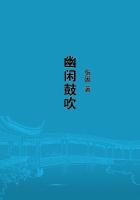Seven years seem anciently to have been, all over Europe, the usual term established for the duration of apprenticeships in the greater part of incorporated trades.All such incorporations were anciently called universities, which indeed is the proper Latin name for any incorporation whatever.The university of smiths, the university of tailors, etc., are expressions which we commonly meet with in the old charters of ancient towns.When those particular incorporations which are now peculiarly called universities were first established, the term of years which it was necessary to study, in order to obtain the degree of master of arts, appears evidently to have been copied from the terms of apprenticeship in common trades, of which the incorporations were much more ancient.As to have wrought seven years under a master properly qualified was necessary in order to entitle any person to become a master, and to have himself apprenticed in a common trade; so to have studied seven years under a master properly qualified was necessary to entitle him to become a master, teacher, or doctor (words anciently synonymous) in the liberal arts, and to have scholars or apprentices (words likewise originally synonymous) to study under him.
By the 5th of Elizabeth, commonly called the Statute of Apprenticeship, it was enacted, that no person should for the future exercise any trade, craft, or mystery at that time exercised in England, unless he had previously served to it an apprenticeship of seven years at least; and what before had been the bye law of many particular corporations became in England the general and public law of all trades carried on in market towns.
For though the words of the statute are very general, and seem plainly to include the whole kingdom, by interpretation its operation has been limited to market towns, it having been held that in country villages a person may exercise several different trades, though he has not served a seven years' apprenticeship to each, they being necessary for the conveniency of the inhabitants, and the number of people frequently not being sufficient to supply each with a particular set of hands.
By a strict interpretation of the words, too, the operation of this statute has been limited to those trades which were established in England before the 5th of Elizabeth, and has never been extended to such as have been introduced since that time.
This limitation has given occasion to several distinctions which, considered as rules of police, appear as foolish as can well be imagined.It has been adjudged, for example, that a coachmaker can neither himself make nor employ journeymen to make his coach-wheels, but must buy them of a master wheel-wright; this latter trade having been exercised in England before the 5th of Elizabeth.But a wheelwright, though he has never served an apprenticeship to a coachmaker, may either himself make or employ journeyman to make coaches; the trade of a coachmaker not being within the statute, because not exercised in England at the time when it was made.The manufactures of Manchester, Birmingham, and Wolverhampton, are many of them, upon this account, not within the statute, not having been exercised in England before the 5th of Elizabeth.
In France, the duration of apprenticeships is different in different towns and in different trades.In Paris, five years is the term required in a great number; but before any person can be qualified to exercise the trade as a master, he must, in many of them, serve five years more as a journeyman.During this latter term he is called the companion of his master, and the term itself is called his companionship.
In Scotland there is no general law which regulates universally the duration of apprenticeships.The term is different in different corporations.Where it is long, a part of it may generally be redeemed by paying a small fine.In most towns, too, a very small fine is sufficient to purchase the ******* of any corporation.The weavers of linen and hempen cloth, the principal manufactures of the country, as well as all other artificers subservient to them, wheel-makers, reel-makers, etc., may exercise their trades in any town corporate without paying any fine.In all towns corporate all persons are free to sell butcher's meat upon any lawful day of the week.Three years in Scotland is a common term of apprenticeship, even in some very nice trades; and in general I know of no country in Europe in which corporation laws are so little oppressive.
The property which every man has in his own labour, as it is the original foundation of all other property, so it is the most sacred and inviolable.The patrimony of a poor man lies in the strength and dexterity of his hands; and to hinder him from employing this strength and dexterity of his hands; and to hinder him from employing this strength and dexterity in what manner he thinks proper without injury to his neighbour is a plain violation of this most sacred property.It is a manifest encroachment upon the just liberty both of the workman and of those who might be disposed to employ him.As it hinders the one from working at what he thinks proper, so it hinders the others from employing whom they think proper.To judge whether he is fit to be employed may surely be trusted to the discretion of the employers whose interest it so much concerns.The affected anxiety of the law-giver lest they should employ an improper person is evidently as impertinent as it is oppressive.















